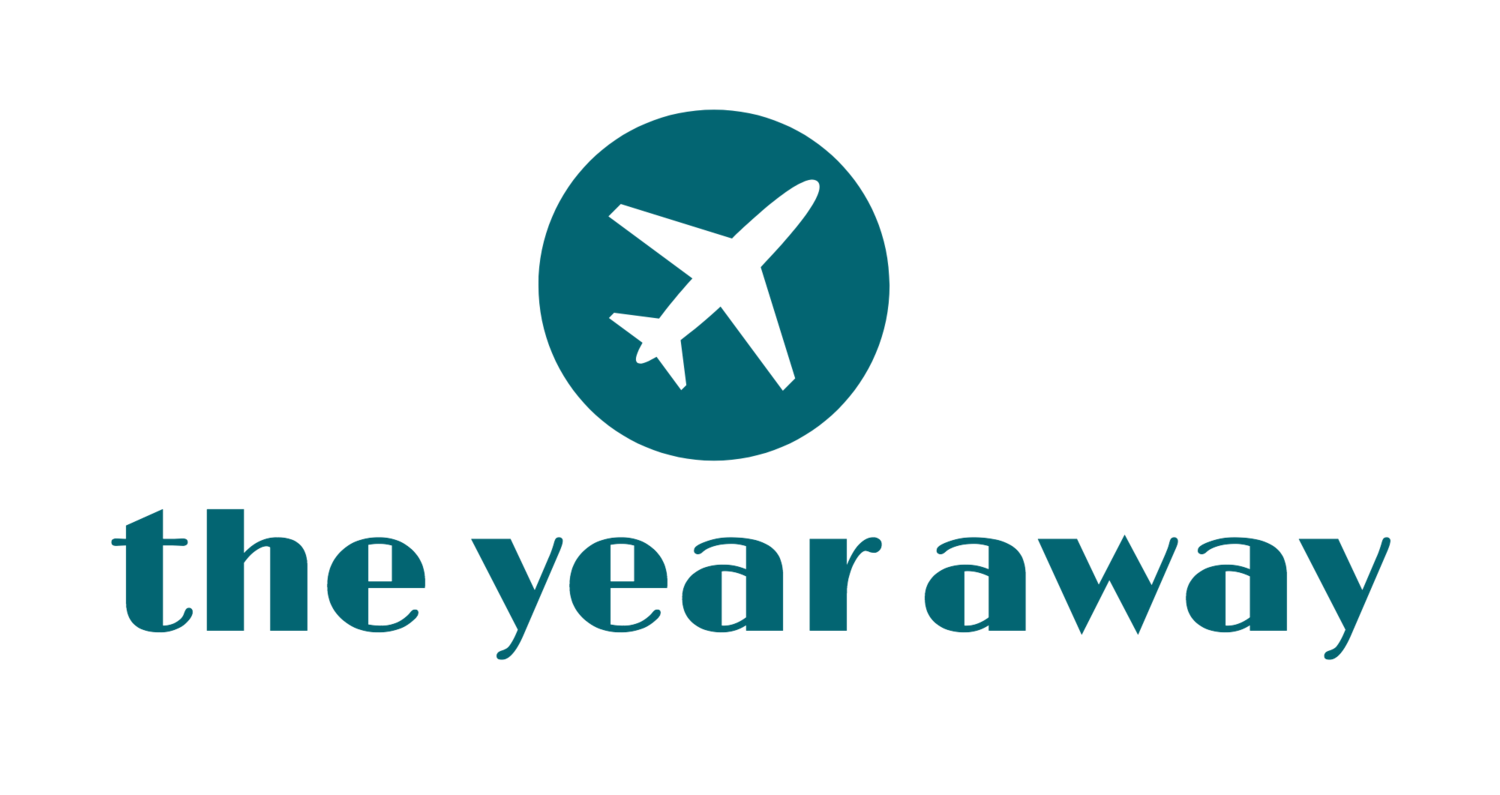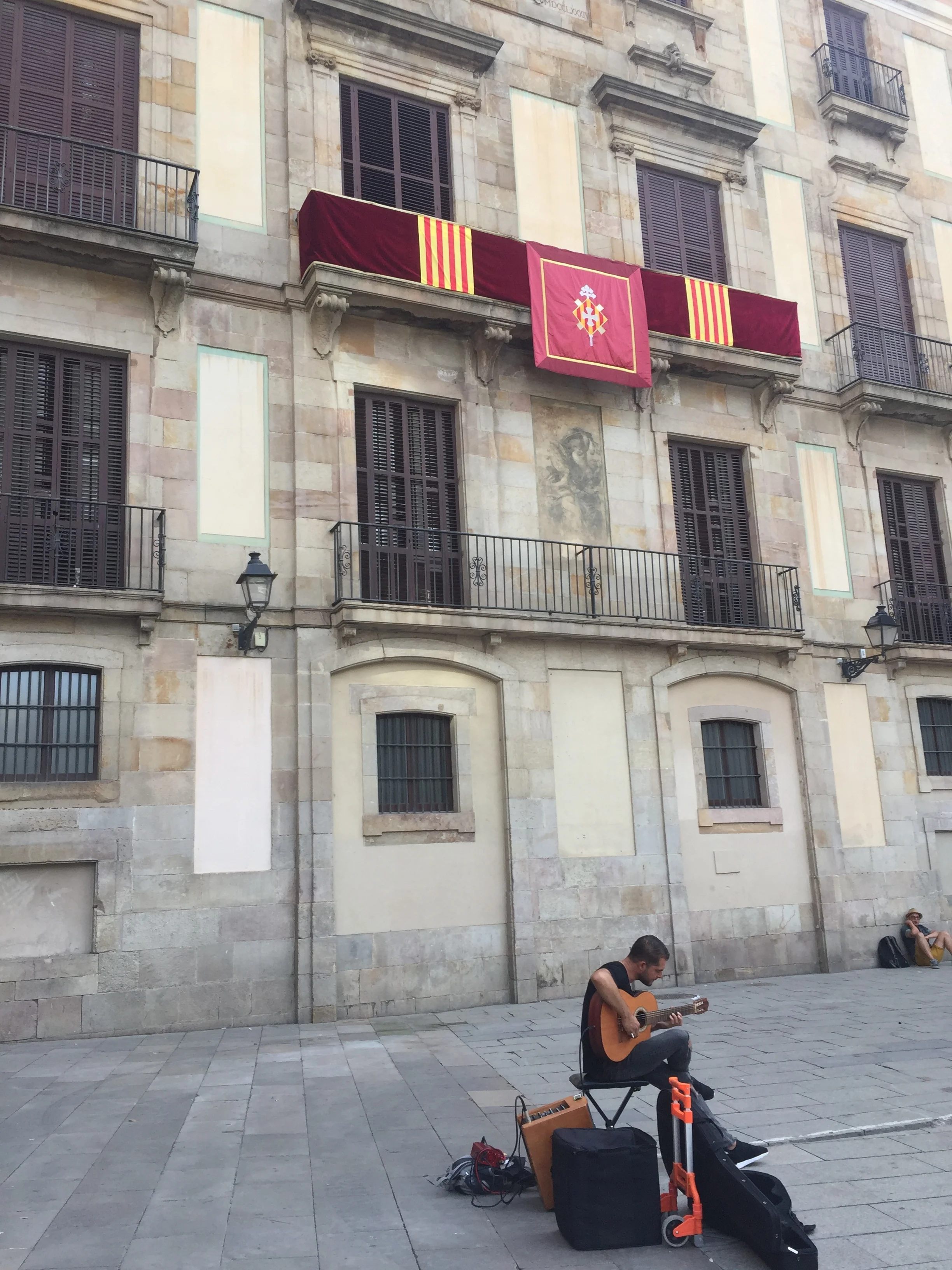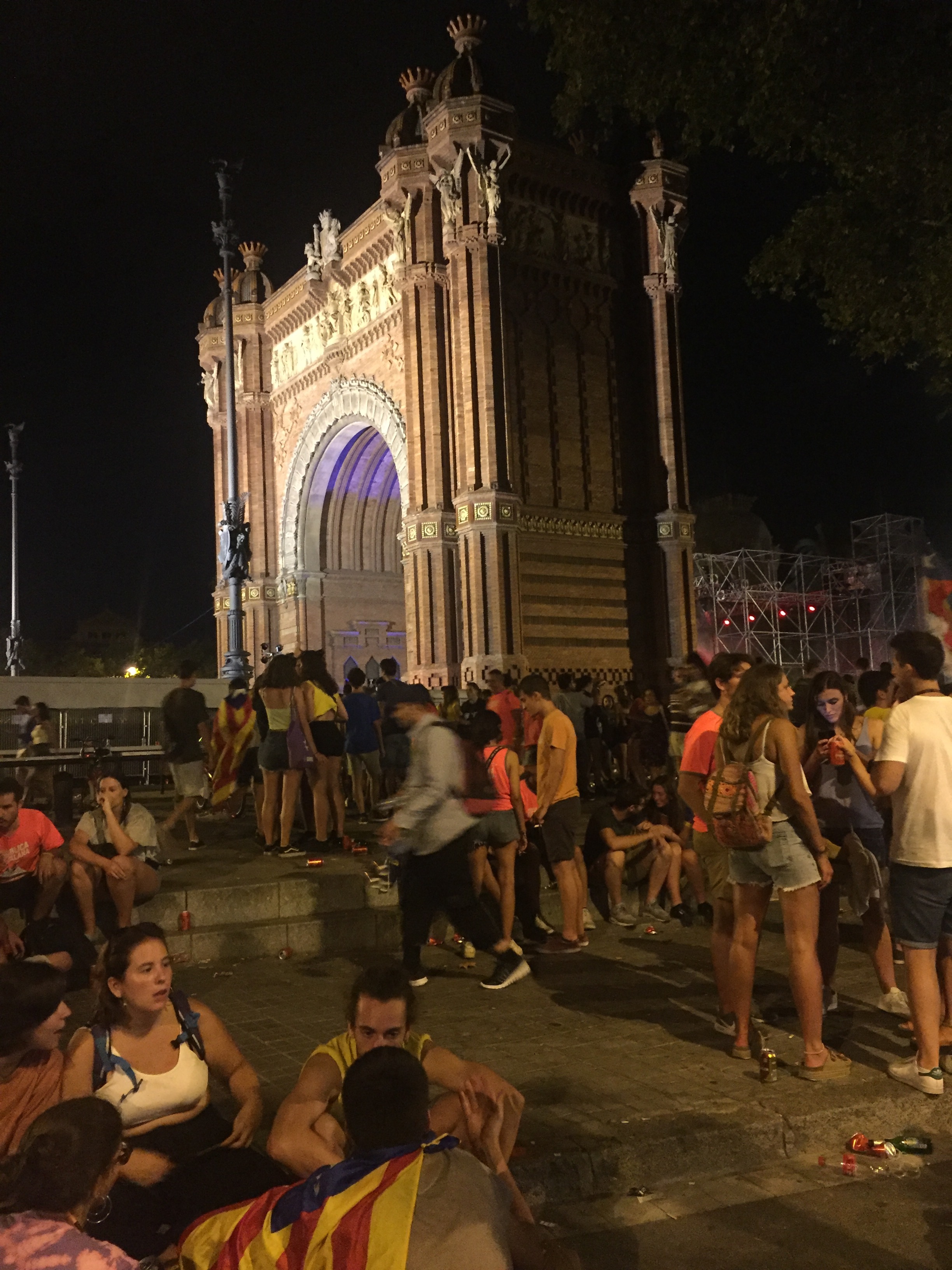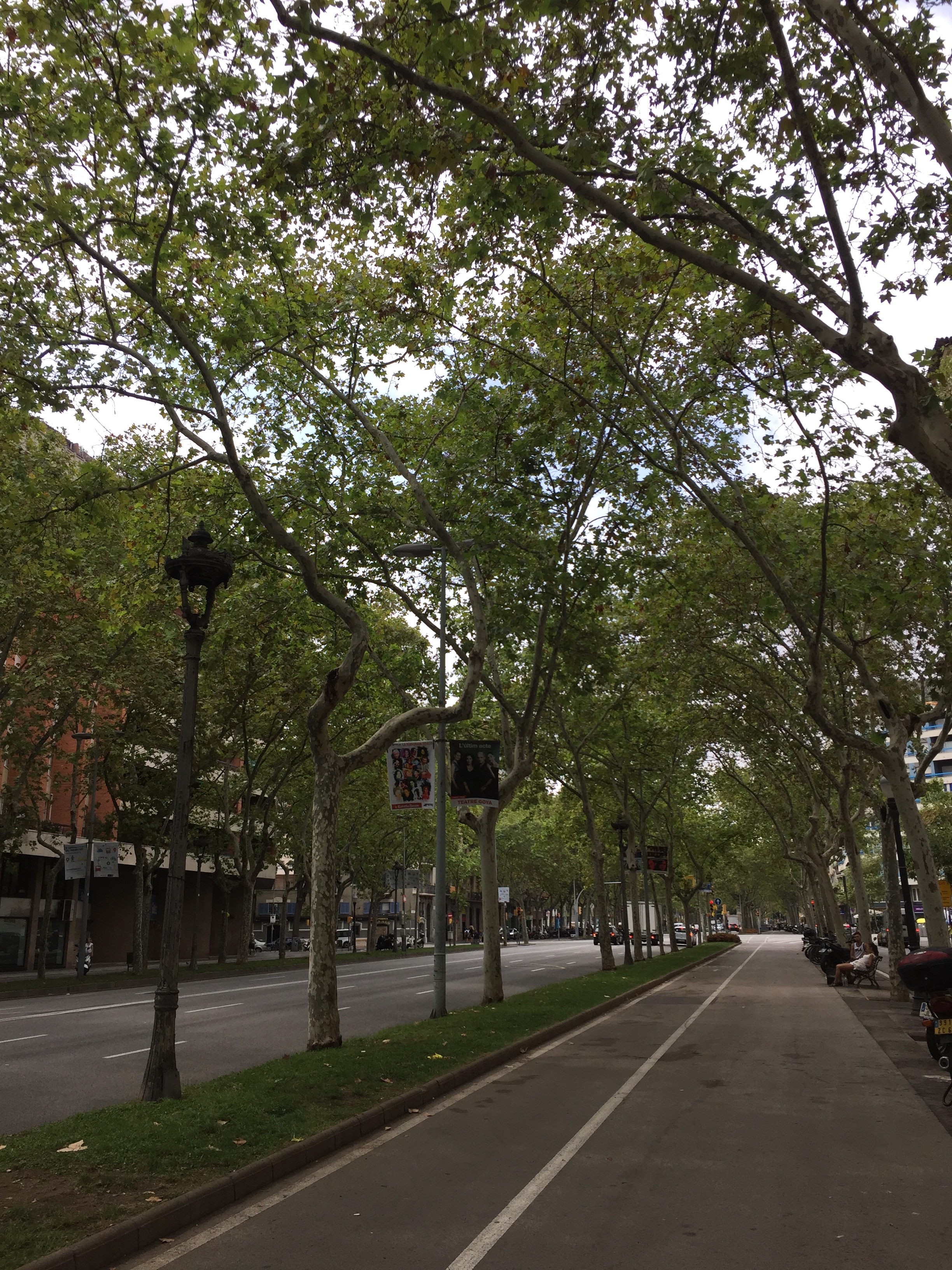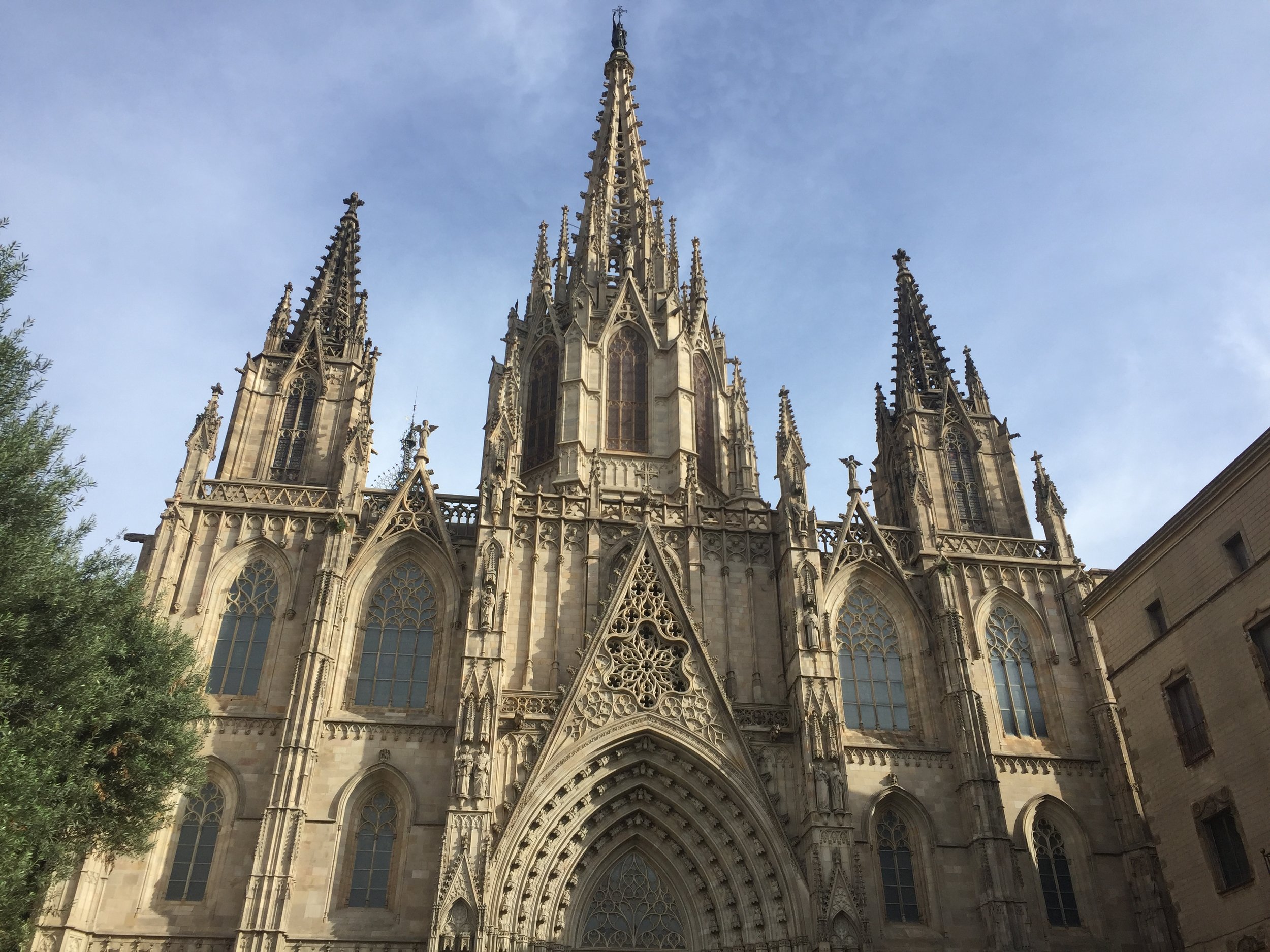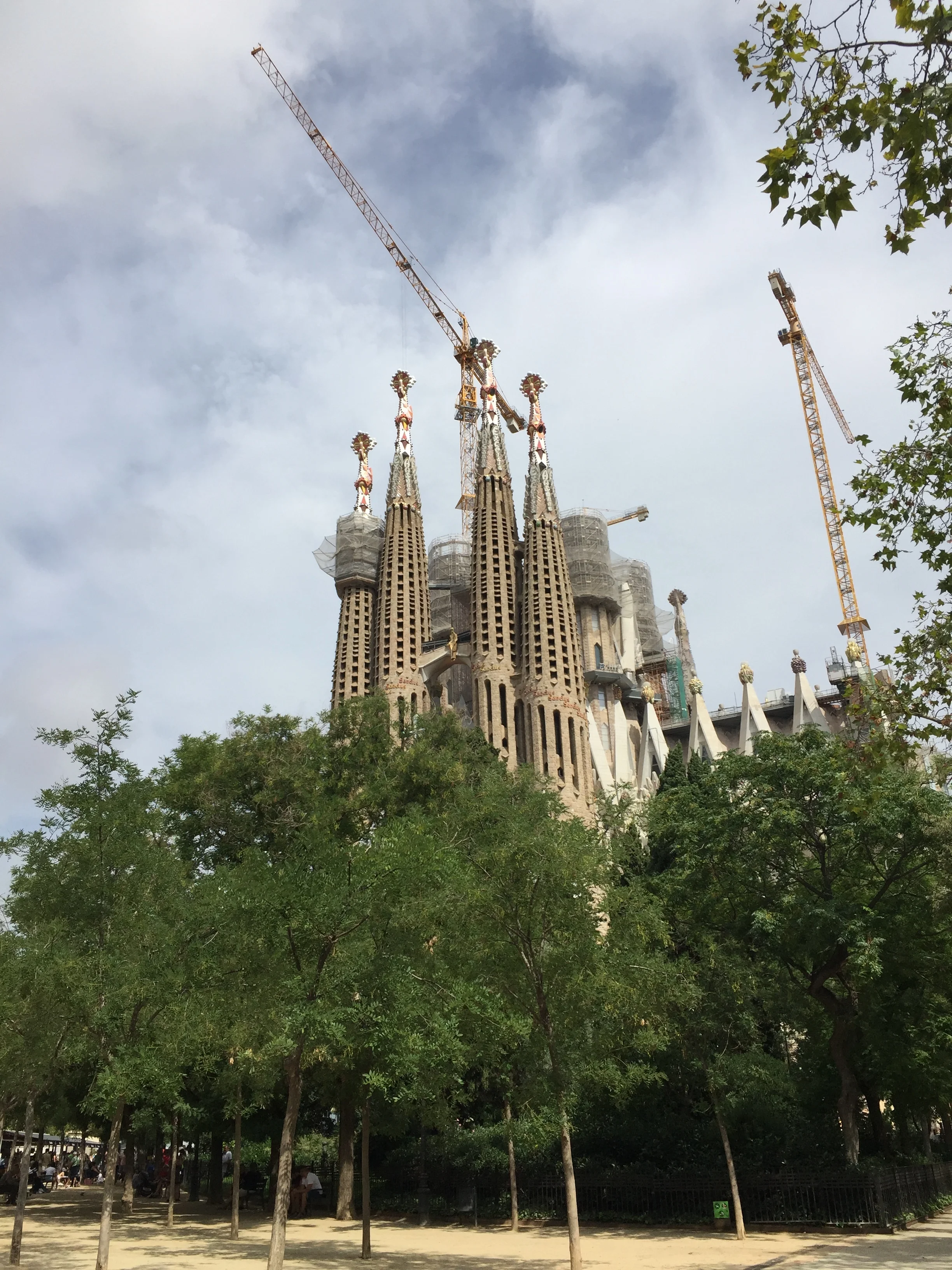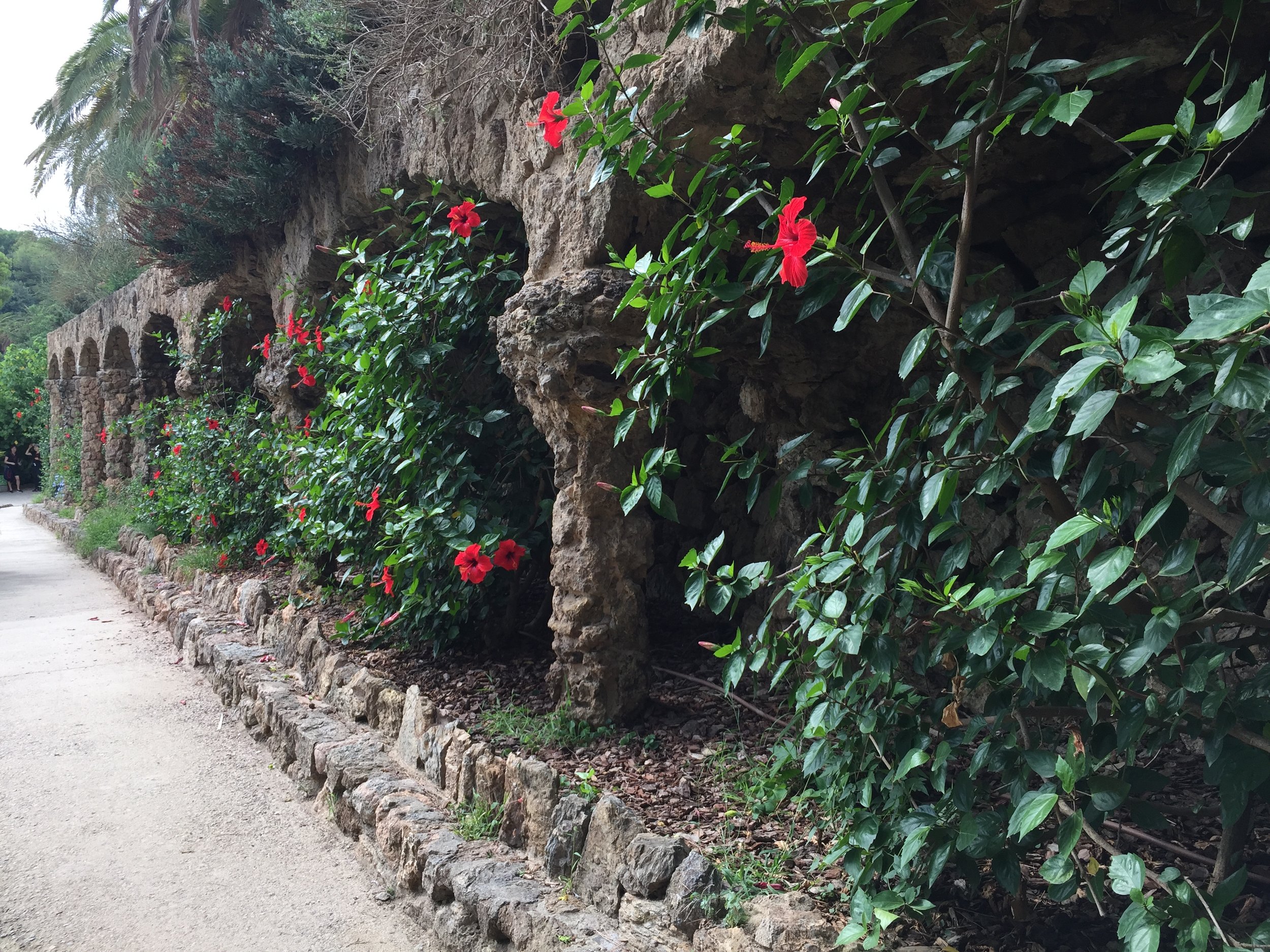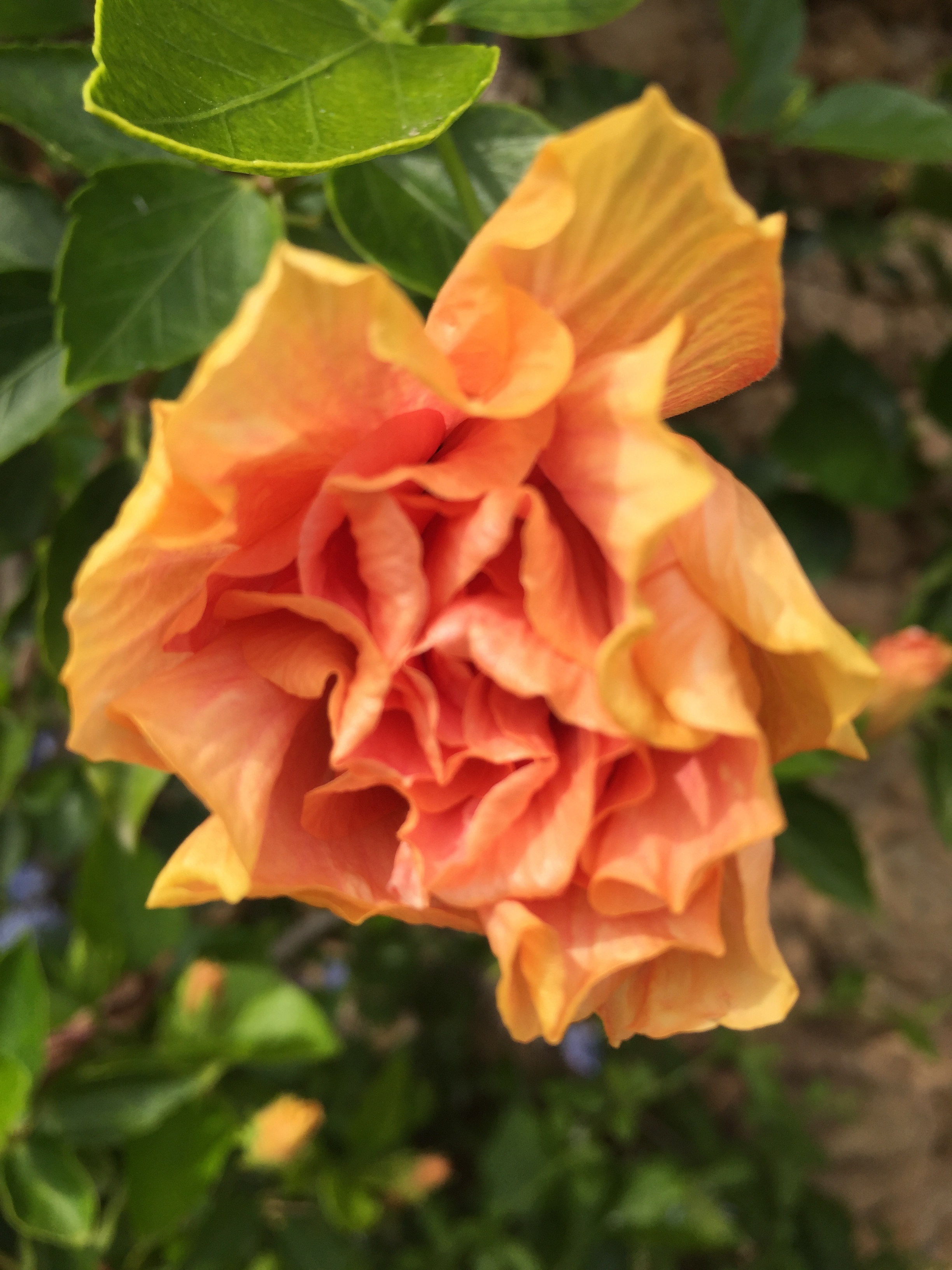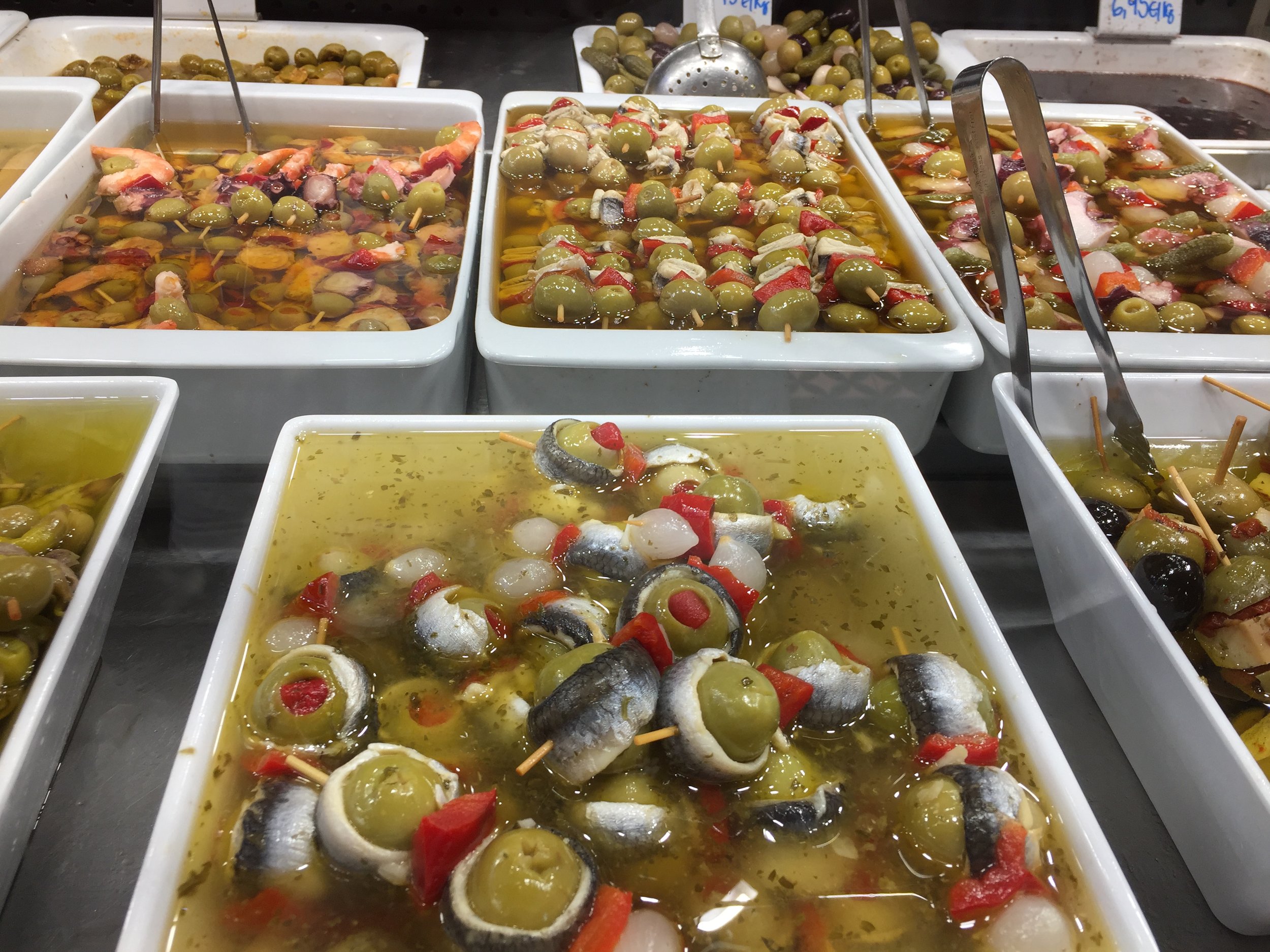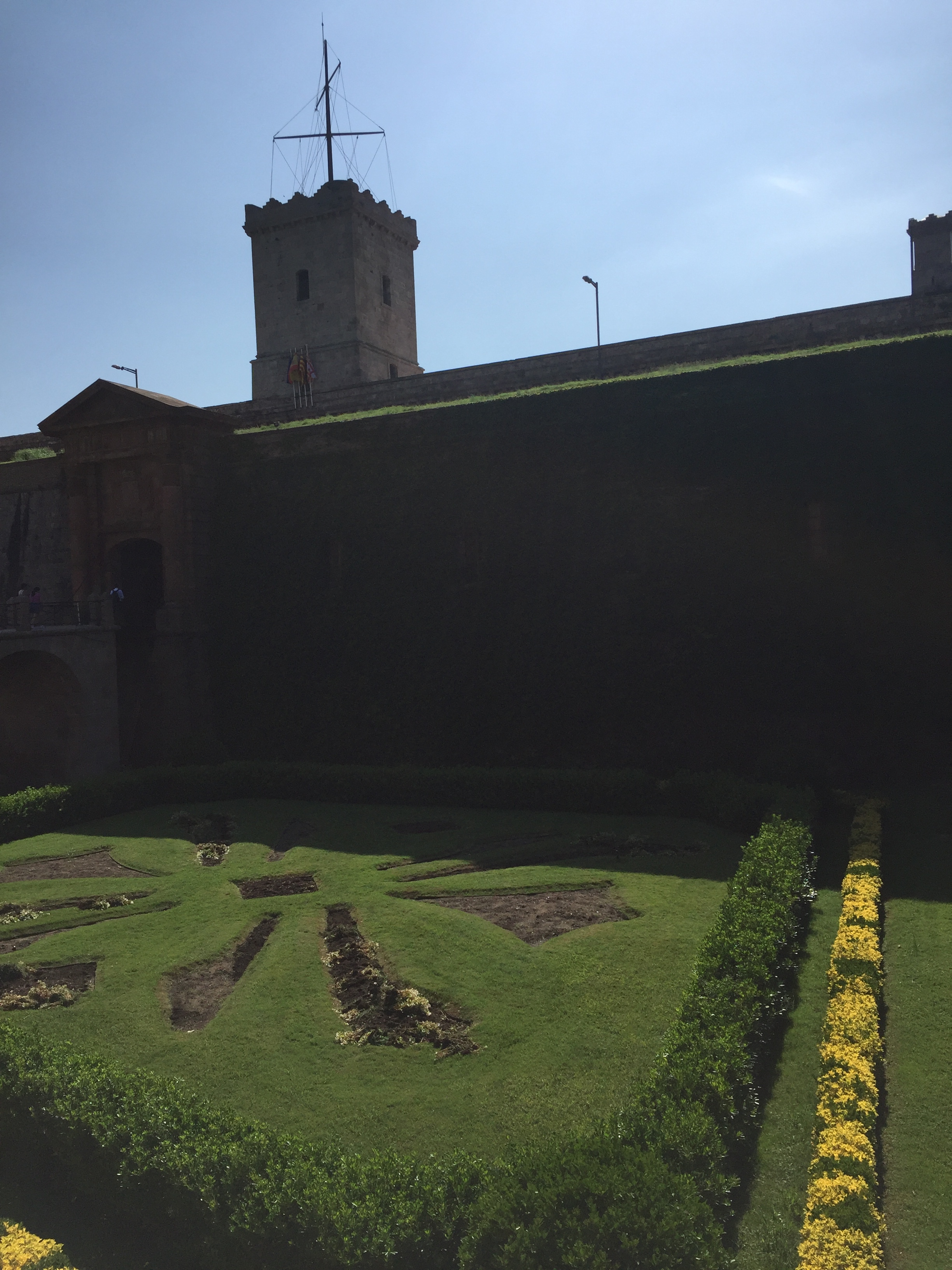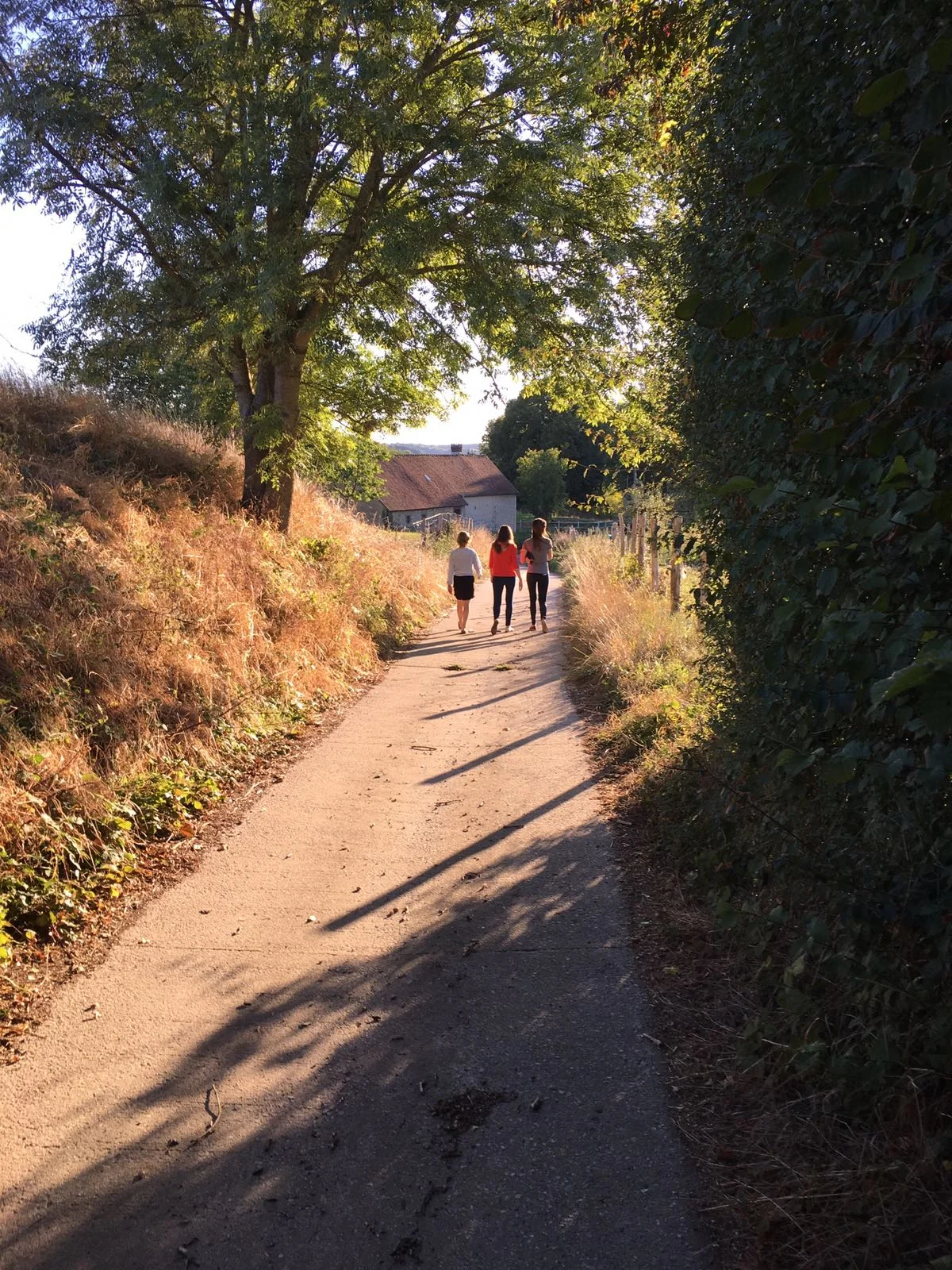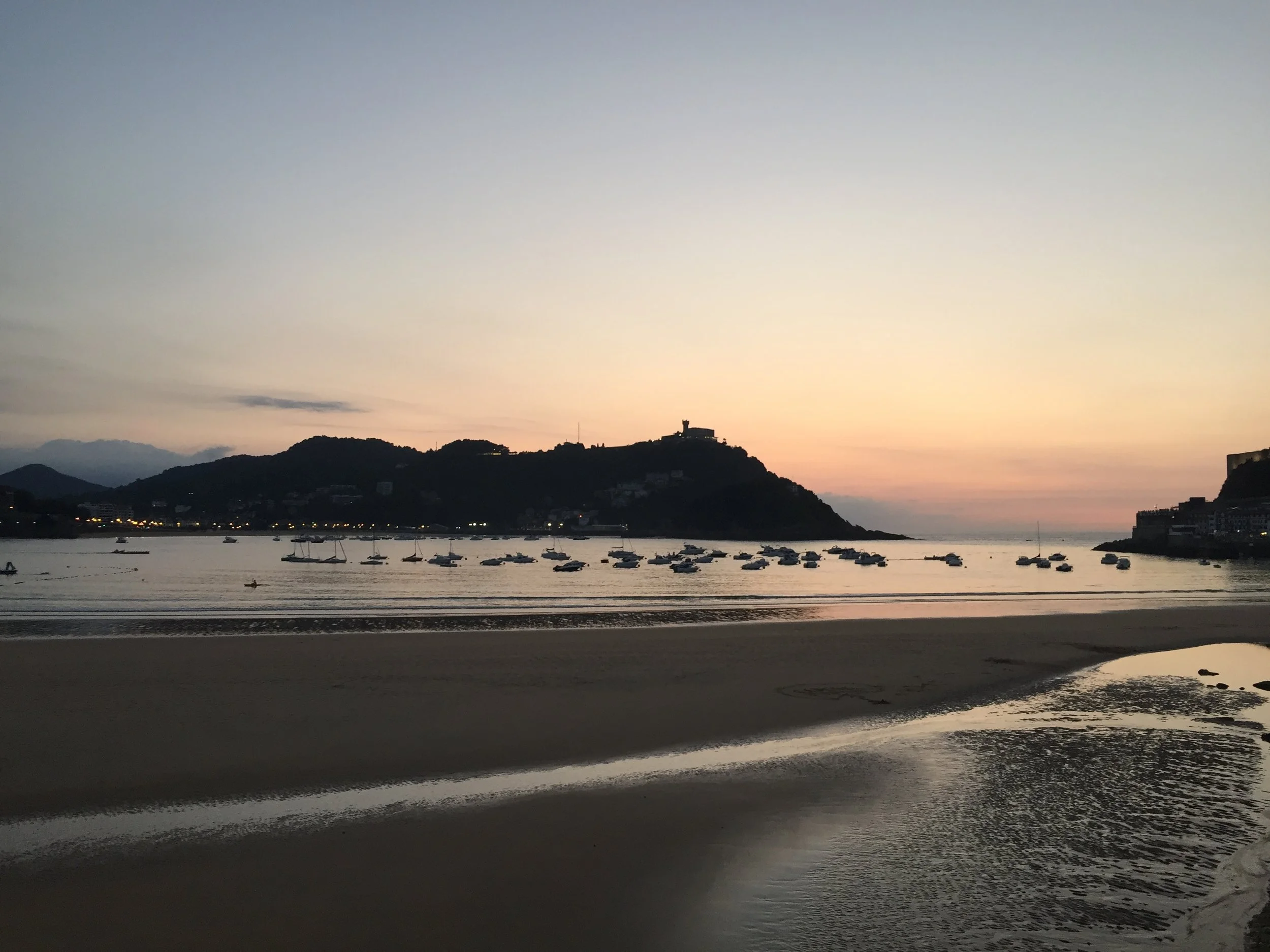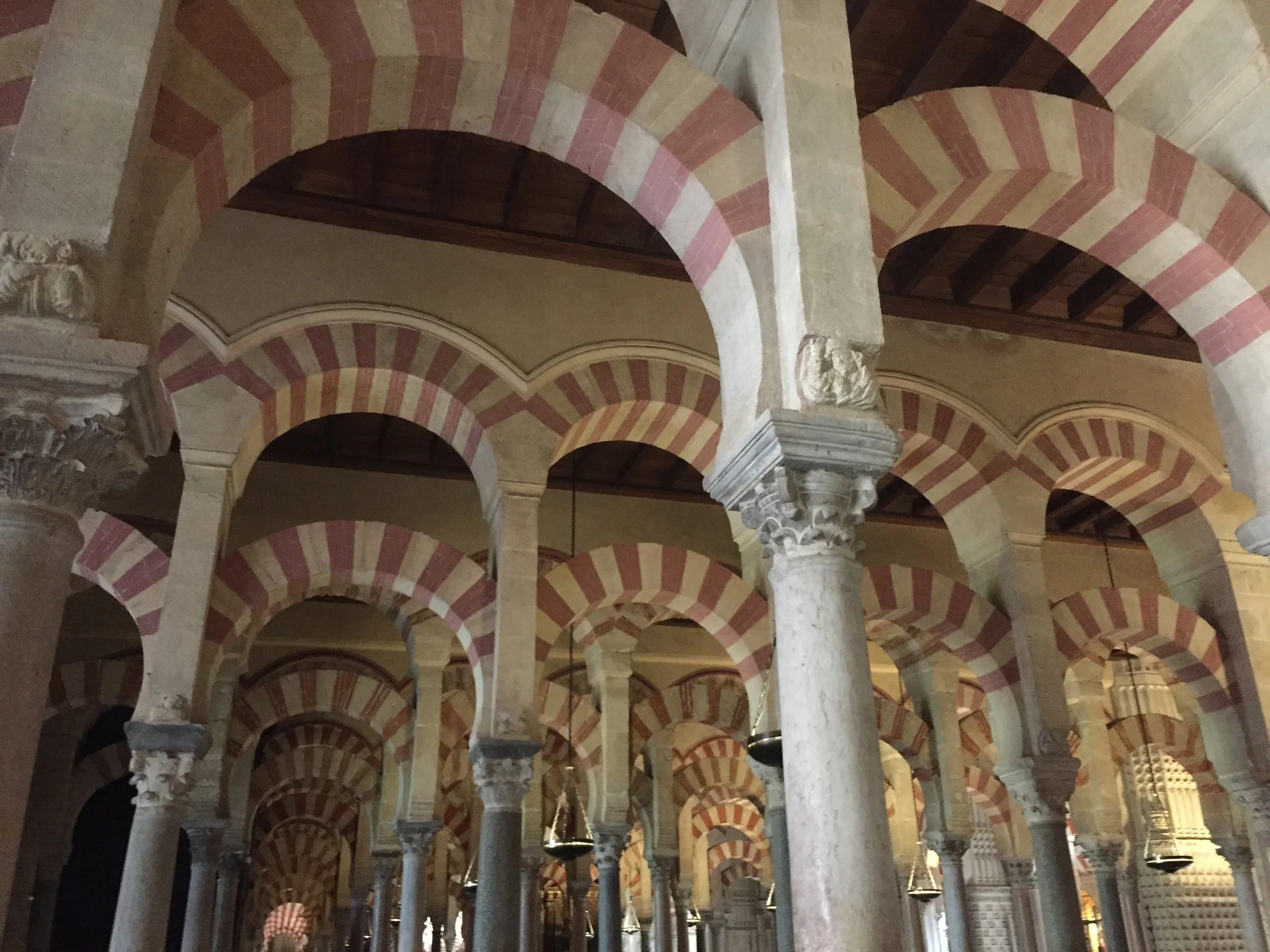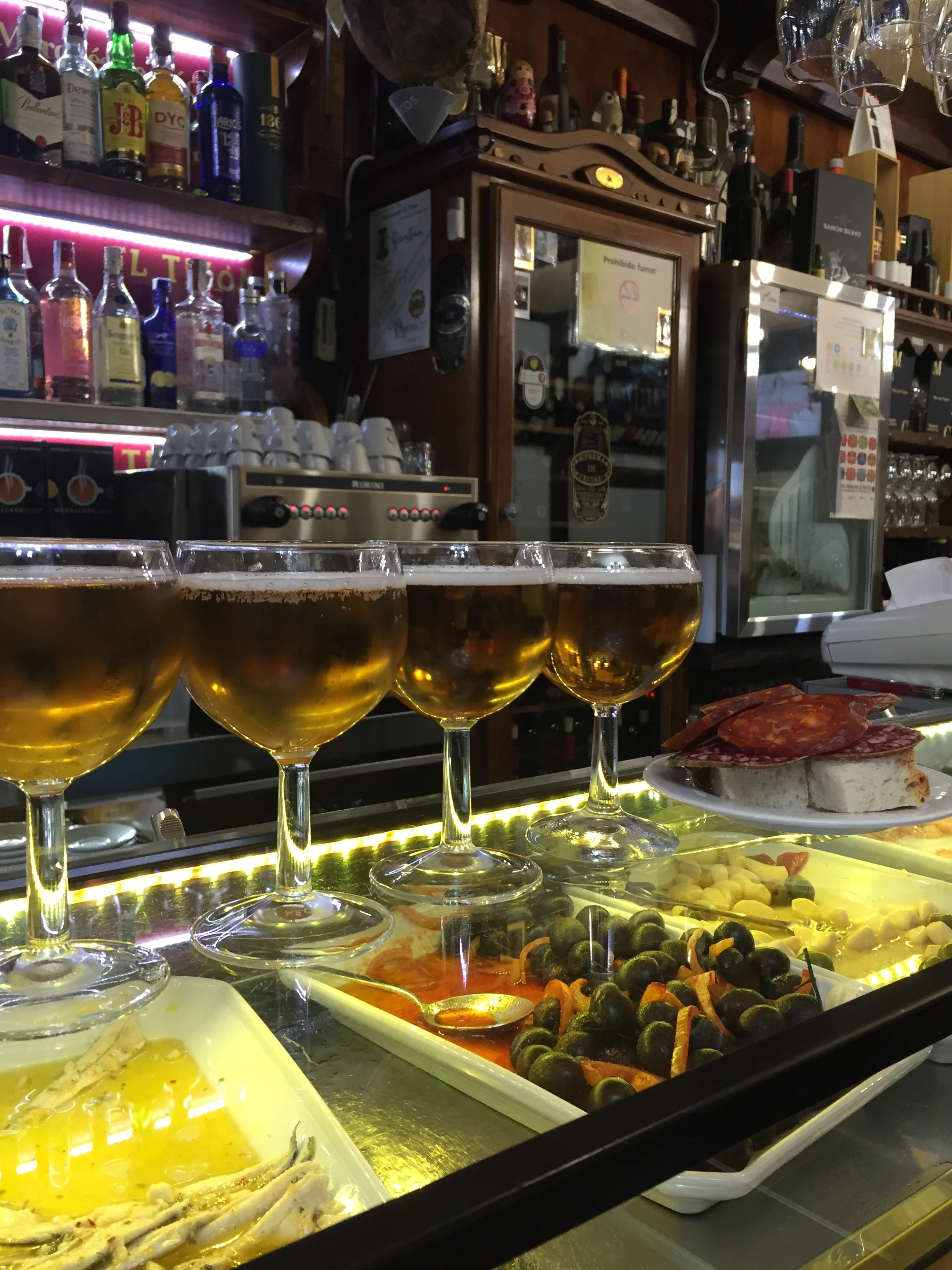Barcelona: A Very Cataluña Day
Our nearly three week tour of Spain felt incomplete without visiting Barcelona. The seaside city has an indescribably dreamy vibe. When brainstorming places to explore this year, Barcelona always ranked high on Will’s list.
So from Madrid, we booked a last minute train to Barcelona. We got to the Atocha Train Station early, and stopped for our typical, traditional breakfast. Café con leche (coffee with milk), tostada con tomate y aceite (bread with crushed tomato and olive oil), and jugo de naranja natural (freshly squeeze orange juice). It will set you back around $4 USD.
The trains in Spain, similar to much of Europe, are fantastic. And far different than any rail experience than I’ve had in the States. The word spacious, comes to mind.
It just so happened that we arrived in Spain on Cataluña Day.
Back in DC, I’d vaguely followed the question of Catalonian independence when it flared in the news. At least, not to the extent that I probably should have.
Now, only armed with distant American commentary and soundbites, I really didn’t understand what we were getting into.
I should have known that Barcelona is the capitol of Cataluña, or Catalonia, an autonomous region in the northeast of Spain. And that during Franco’s regime, which only ended a mere 43 years ago, Catalonia was stripped of autonomous authority and Catalan identity. Ever since, there’s been a resurgence.
In late 2017, Catalonia held a referendum in favor of formally separating from Spain.
Upon arriving, there was a stark sense that people identified as Catalan, which they deem significantly different than identifying as Spanish.
The tensions between Barcelona and the rest of Spain, particularly Madrid, are inherently rooted in differing economic beliefs.
The official language of Catalonia is Catalan, not Spanish. As I’m slowly trying to learn Spanish via Duolingo, it proved to be incredibly confusing. The signs on the subway, the floors in our airbnb apartment, were all written in Catalan.
On the metro from the Barcelona train station, we quickly picked up there was some sort of event. Perhaps a march? A parade? We had no prior knowledge it was one of the most celebrated days in the region. However, stepping into the streets put things in perspective.
We stayed near the iconic Arc de Triomf, which served as the main access gate for the 1888 Barcelona World Fair.
All around us, Catalonian flags were completely ubiquitous.
And they weren’t solely hanging from balconies. People were wearing them as capes, selling t-shirts, anything to display Catalan pride and support.
Although Barcelona has a deeply different feel than Madrid, elements of Spanish culture are ever-present. Primarily, the appreciation of good company, good drink, and great jamón.
We immediately stopped at Moniberic for two Jamón ibérico baguettes.
The production of jamón ibérico is strictly regulated, and you certainly pay for the quality. We’ve had these cured ham sandwiches throughout our tenure in Spain. But quality jamón ibérico? I’d argue it’s one of the worlds finest delicacies.
We arrived in Barcelona on a Tuesday, and it felt like the entire city was off celebrating. The streets were filled with music.
And the plazas were bustling with street performers and clinking glasses.
In an effort to immerse ourselves in the culture, we decided to follow suit.
We walked up to Carrer de Blai, a street known for bar hopping, and more specifically, pintxos bars.
Similar to San Sebastián, the Basque-style tapas are pinned with a toothpick. You choose what looks tasty, and get charged for the toothpick. We started at Pincho J, which we found far more affordable than San Sebastián, at roughly two euros a piece.
We met a kind Polish couple, and it turned out it was his birthday. To celebrate, we toasted with a bottle of cava. A festive way to cap off Catalonia Day.
Once the celebration died down the following day, we went out to explore.
Although the blatant Catalonia celebrations had ceased, flags waving from apartments became a familiar and normalized site.
The architecture in Barcelona is quite varied, though it’s largely known for modernisme, or Catalan modernism.
As such, Antoni Gaudí is one of the most widely lauded artist of this movement.
Whereas Gaudí’s work is scattered throughout the city, the Basilica of the Sagrada Família remains one of his most recognizable works. Gaudí’ took over as the lead architect of the cathedral in 1883. However, when he died in 1926, it’s believed the basilica was only about 20 percent complete.
We also trekked up to another iconic Gaudí masterpiece: Park Güell.
It’s located slightly outside of the main downtown, in one of our favorite neighborhoods, the Gràcia district.
The park was constructed from 1900 to 1914.
However, it wasn’t officially opened to the public until 1926, and remains one of Gaudí’s most quirky works.
Although crowded with visitors, it still felt like a reprieve from the city. Primarily, because of the spectacular views of the city and the Mediterranean.
There’s something about the colorful tile work that made me think it embodied the bright, playful stereotype I held of Barcelona.
The sunny climate, the beach vibe. To me, Barcelona feels like a young city that attracts creatives.
This sentiment felt concentrated while walking through the bright, whimsical Park Güell.
The unique flowers and colorful gardens themselves were stunning.
If you’re planning on visiting, we found it beneficial to book tickets in advance online. Only a certain amount of visitors are permitted on the grounds at a time.
Furthermore, it’s worth noting that the park is undergoing some construction. If anything, we found it interesting to see how to preserve such an unique structure.
One of our favorite aspects of Barcelona is how walkable it is. Each neighborhood has a distinct identity, but we found it easy enough to reach most on foot.
When walking through the center of the city through the neighborhood The Ravel, we came across Mercat de la Boqueria.
With such a wide array of fresh an local delicacies, it’s become a sort of a tourist attraction.
Nonetheless, there was plenty to explore, with scents from snack cones filled with jamón or olive oil marinated fish.
Needing a breath of fresh air, we trekked up to Montjuïc Castle on our last full day.
Located past the neighborhood of Poble-Sec, it’s south of the city center.
The walk up is a hike, there’s no sugar coating it.
There is an option to take a gondola up the mountain.
But it was a gorgeous day, so we opted to walk.
Fortunately, there was plenty to discover in the area leading up to the castle.
Otherwise, we may have missed the Jardins de Laribal, a free park with sculptures, winding paths, and lily ponds.
We particularly enjoyed the Greek Gardens.
The castle itself is impressive, dating back to 1640.
But honestly we ended up spending most of the day enjoying our packed picnic and reading in the surrounding area.
We loved Barcelona. I was hesitant to go initially, since I’d already been back in 2008. However, this time took on an entirely new meaning.
Traveling with Will, arriving on there on Catalonia Day. We added Barcelona to our ever-growing list of cities we’d live in. The rich history, combined with an exciting, vibrant future makes it have an undeniable allure.

